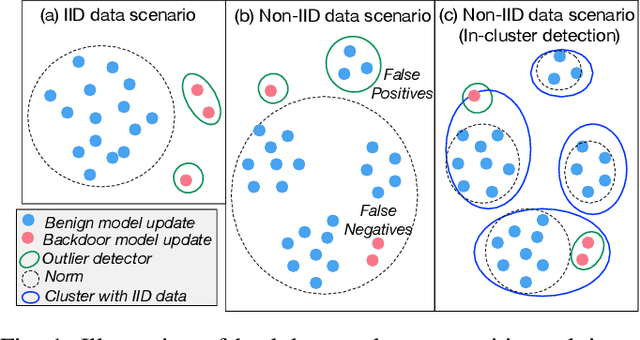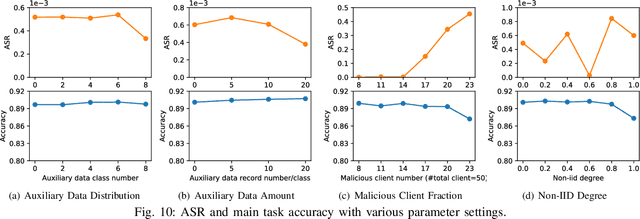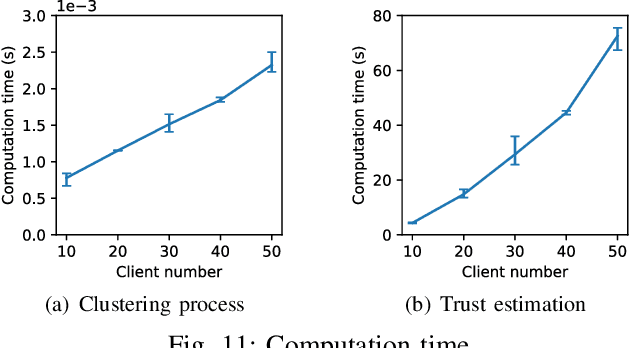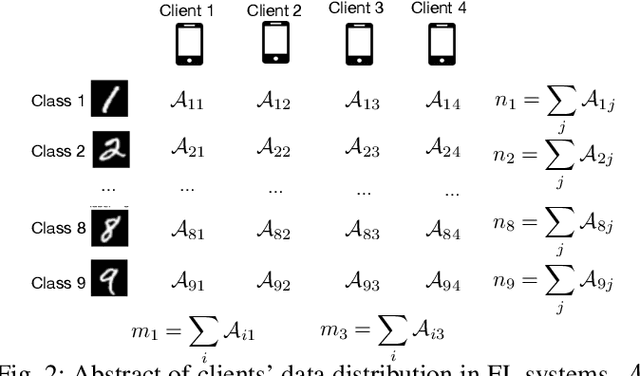BoBa: Boosting Backdoor Detection through Data Distribution Inference in Federated Learning
Paper and Code
Jul 12, 2024



Federated learning, while being a promising approach for collaborative model training, is susceptible to poisoning attacks due to its decentralized nature. Backdoor attacks, in particular, have shown remarkable stealthiness, as they selectively compromise predictions for inputs containing triggers. Previous endeavors to detect and mitigate such attacks are based on the Independent and Identically Distributed (IID) data assumption where benign model updates exhibit high-level similarity in multiple feature spaces due to IID data. Thus, outliers are detected as backdoor attacks. Nevertheless, non-IID data presents substantial challenges in backdoor attack detection, as the data variety introduces variance among benign models, making outlier detection-based mechanisms less effective. We propose a novel distribution-aware anomaly detection mechanism, BoBa, to address this problem. In order to differentiate outliers arising from data variety versus backdoor attack, we propose to break down the problem into two steps: clustering clients utilizing their data distribution followed by a voting-based detection. Based on the intuition that clustering and subsequent backdoor detection can drastically benefit from knowing client data distributions, we propose a novel data distribution inference mechanism. To improve detection robustness, we introduce an overlapping clustering method, where each client is associated with multiple clusters, ensuring that the trustworthiness of a model update is assessed collectively by multiple clusters rather than a single cluster. Through extensive evaluations, we demonstrate that BoBa can reduce the attack success rate to lower than 0.001 while maintaining high main task accuracy across various attack strategies and experimental settings.
 Add to Chrome
Add to Chrome Add to Firefox
Add to Firefox Add to Edge
Add to Edge